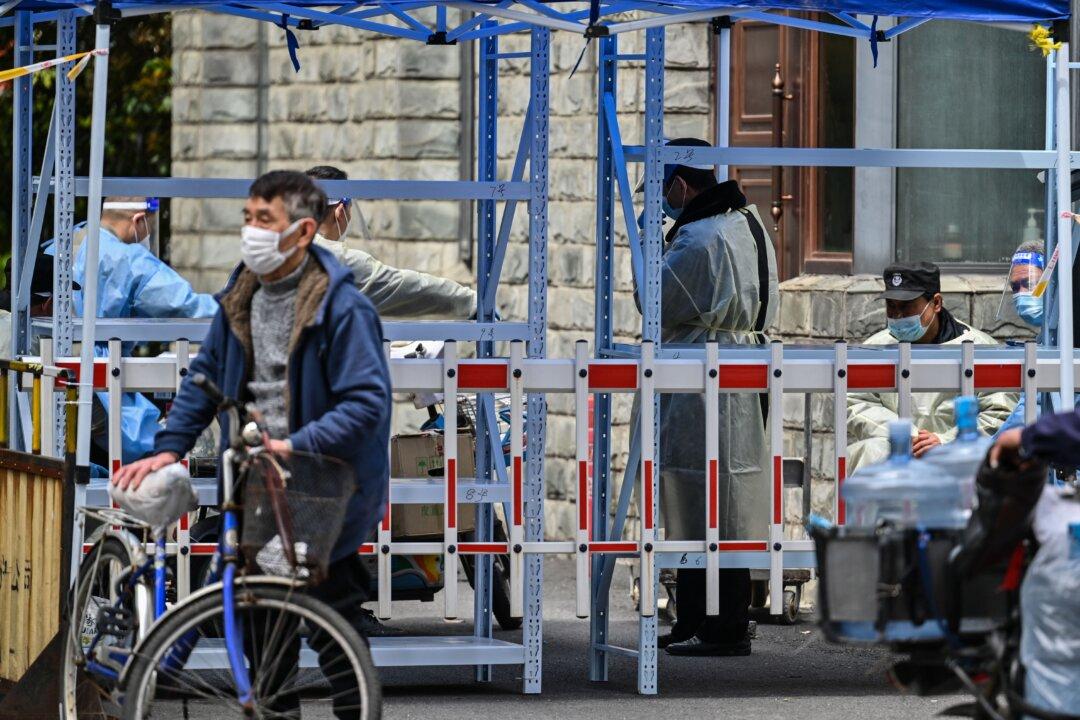BEIJING—China’s largest city of Shanghai is ordering mass testing Friday of all 1.3 million residents of its downtown Yangpu district and confining them to their homes at least until results are known.
The demand is an echo of measures ordered over the summer that led to a two-month lockdown of the entire city of 25 million that devastated its economy, prompting food shortages and rare confrontations between residents and the authorities.





